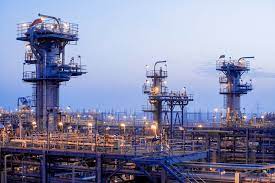Riyad February 28 2022: Saudi Arabia has discovered five conventional and unconventional gas fields across the country, energy minister Prince Abdulaziz bin Salman said Feb. 27, as the world’s biggest crude exporter boosts gas exploration and production to free up oil used domestically for export.
State-run Saudi Aramco discovered a field in the central region 180 km southeast of the capital Riyadh, with a flow rate of 27 MMcf/d and 3,300 b/d of condensate, Prince Abdulaziz said in a statement carried by the official Saudi Press Agency.
A L S O || R E A D
UAE’s non-oil foreign trade records 27% growth in 2021 totalling nearly AED 1.9 trillion
Aramco also discovered a gas field in the Empty Quarter desert, 70 km southwest of the Shaybah oil field, with a flow rate of 31 MMcf/d, and another field in the Empty Quarter lying 120 km southwest of Shaybah at a flow rate of 16.9 MMcf/d and 50 b/d of condensate.
Along the northern border, Aramco found an unconventional gas field 71 km southeast of the city of Arar, with a flow rate of 2 MMcf/d and 295 b/d of condensate.
A second unconventional gas field was discovered south of the Ghawar oil field, the world’s biggest, with a flow rate at one well reaching 5.8 MMcf/d and 24 b/d of condensate, and a second well at 11.6 MMcf/d and 169 b/d of condensate, and another well at 9.25 MMcf/d, the minister added.
Saudi Arabia sits on 17.2% of the world’s proven oil reserves and 3.2% of proven gas reserves as of the end of 2020, according to BP’s Statistical Review for World Energy 2021.
Aramco averaged 9.03 Bcf/d of gas production in 2020, according to its most recent annual report. The bulk of the output comes from associated gas pumped along with Saudi Arabia’s massive crude oil production.
But the company is hoping to ramp up development of its non-associated gas reserves, including its Jafurah shale play in the Eastern Province, which holds some 200 Tcf of resource, as it seeks to reduce the amount of oil consumed in its power plants for electricity generation.
Aramco officials have said that field will expand its gas production, while also providing feedstock to support growth in its chemicals and hydrogen sectors, as well as hoping the kingdom achieve its goals of net zero carbon emissions by 2060.










